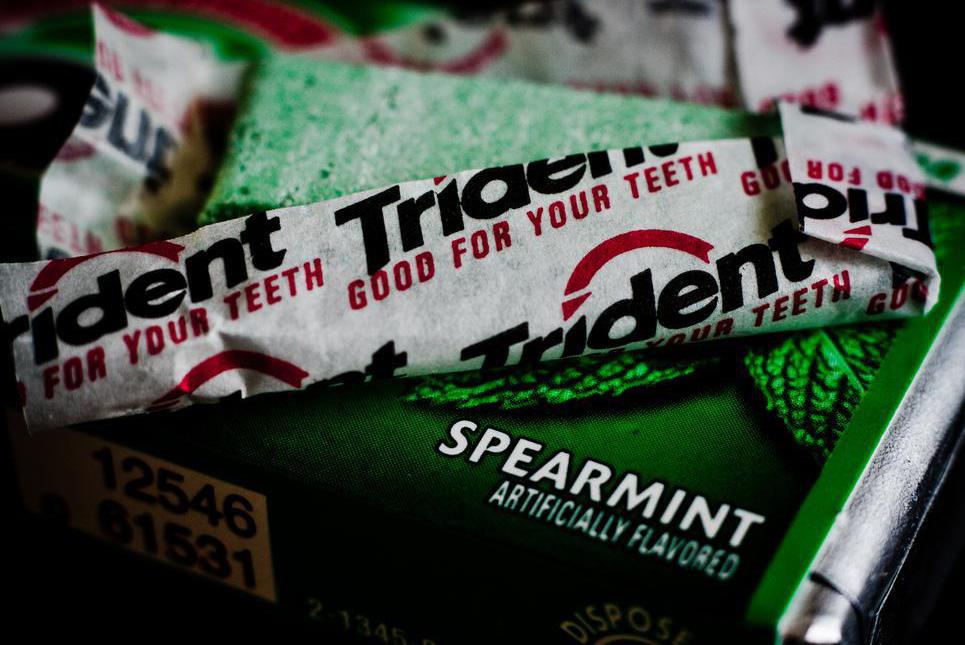At WiseGEEK, we're committed to delivering accurate, trustworthy information. Our expert-authored content is rigorously fact-checked and sourced from credible authorities. Discover how we uphold the highest standards in providing you with reliable knowledge.
Is Chewing Gum Unhealthy?
A combination of rubber, sweeteners and food coloring is what makes up most of the modern chewing gum sold today. In the past, most chewing gum manufacturers used synthetic rubber or “chicle,” a resin from rain forest trees, as the base. Today, however, the company Glee Glum claims to be the only remaining U.S. gum manufacturer to still use chicle as its gum base.
Before most chewing gum brands employed sugar substitutes, excessive gum chewing was not considered conducive to oral health. Today, most chewing gum brands use artificial sweeteners, including aspartame, acesulfame potassium, and sucralose, and do not pose the same cavity threat to oral hygiene. Meanwhile, chewing gum that is medicated, such as nicotine gum, may provide the health benefit of assisting the chewer in smoking cessation; however it may also become unhealthy if it becomes abused or addicting in itself.

The United States military has distributed chewing gum for decades directly to its soldiers, believing that chewing gum improves concentration and relieve stress. As well, New Zealand’s Defense Force has introduced a chewing gum called Recaldent into their distributed ration packs, as the gum has been shown to combat tooth decay.
In 2008, an article published by Canwest News reported that acetic acid ethenyl ester, a common substance found in chewing gum, was being investigated by Health Canada and could soon be labeled toxic by Canada’s federal government. Also known as vinyl acetate, the substance is often used as a flavoring agent in chewing gum, and has been found to potentially cause cancer in lab rats during a study conducted by an international agency. Vinyl acetate is also used to produce deodorizers, perfumes, paints, and other products.

One common myth concerning the potential health risks of chewing gum is that it takes several years to digest. Although chewing gum is often labeled “indigestible,” as it resists the body’s natural efforts to digest food, it is eliminated from the body in the same manner and time frame as regular food.
AS FEATURED ON:
AS FEATURED ON:


















Discussion Comments
@irontoenail - Well, kids shouldn't be chewing that much gum in the first place, honestly. Chewing gum in schools is usually banned and it's not the healthiest treat for them. It makes the stomach think that food is coming, even when it's not and that can cause acid reflux, or just make the kid hungrier than they might otherwise be.
@pleonasm - While I'm sure chewing gum is intended to be non-toxic, because they know people are sometimes going to swallow it, it's probably still not a great idea to swallow it regularly. I can't imagine it's any good for your gut, even if it doesn't linger there for years on end.
Although what concerns me more these days is that often chewing gum contains those artificial sweeteners that are also laxatives, so people who eat too much of it end up with upset stomachs.
Considering how much gum I went through as a kid, there are definitely kids out there who could make themselves sick if they got into the wrong kind of sugarless chewing gum.
I remember hearing that myth over and over when I was a kid. Sometimes it was claimed that it would last up to forty years in your stomach, although I have no idea how I thought they would even know that. But I do remember I was very reluctant to swallow gum and would usually try to spit it out instead.
I'm pretty sure even adults believed that myth back then, though, as I can remember my father telling me not to swallow gum.
Post your comments